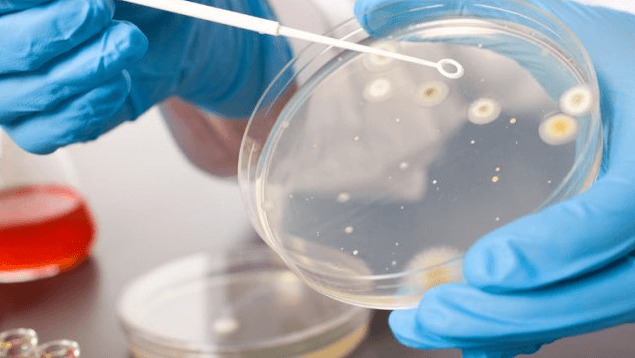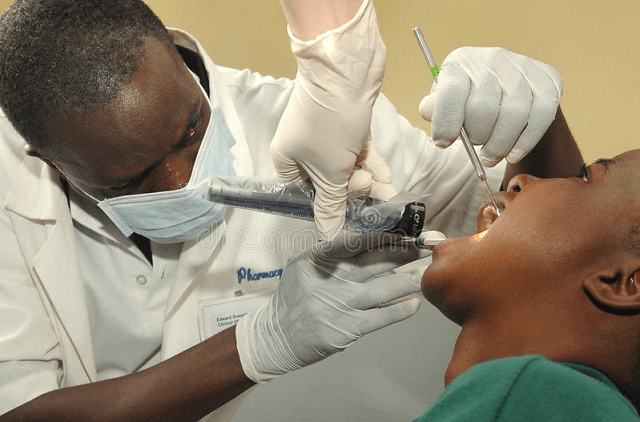Microbiology may not be the most lucrative of professions in Nigeria today, but it sure ranks up there among the most rated, appreciated and important. The importance of Microbiology has significantly increased in recent worlds and so does the demand for microbiologists. Experts in this field easily blend into different sectors and the dynamism of the profession has opened more opportunities for graduates in the field in Nigeria today.
In this post, we will take a look at various sectors Microbiologists operate and work in Nigeria and how much they are paid today.
today.
Microbiologists’ Salary in Nigeria
Salaries of Microbiologists is quite difficult to estimate today. This is because of the difference in job description, company, industry, years of experience and sometimes, location.
For instance, a microbiologist working in the oil and gas sector is generally expected to earn more than a colleague working with a manufacturing firm. Also, Microbiologists in federal and State hospitals significantly earn more than their colleagues in private health institutions.
Here, we will consider how much Microbiologists in different industries earn, emphasizing on how much the companies in the industry pay their entry-level staffs.
Medical/Pharmaceutical Microbiologists
Medical and Pharmaceutical Microbiology are among the most looked into section of this field. Medical or Clinical Microbiologists work in hospitals, laboratories and most of the time, work with pharmacists.
Although their involvement of Microbiologists have reduced in these fields in recent times, some still open door for their expertise. Microbiologists in government hospitals earn between N80, 000 – N120, 000 for a start while their colleagues in private institutions earn between N50, 000 – N80, 000.
Microbiologists in FMCGs
Industrial Microbiologists also have a place in FMCG industries in Nigeria. Several manufacturing and other industrial companies require the services of Microbiologists in Nigeria and while some of these organizations pay moderately well, some other do not.
Microbiologists are needed in Manufacturing industries, chemical industries, food industries, and other chemical-related industries. The salaries here are quite relative to the industry. On the average though, FMCGs pay Microbiologists between N45, 000 – N200, 000 depending on the company, job description, and location.
Microbiologists in Oil and Gas
The oil and gas sector is one sector that accommodates many specialists and Microbiologists are among the useful experts required in this field. Although there is only a limited number of microbiologists required here due to their limited functionality, there is still room for experts to help in other areas including crude oil refining and other biology-related activities on the field. Entry-level Microbiologists in this field earn between N200, 000 and N400, 000 and the salary significantly increases with time and experience.
Education
The Education sector has also seen more Microbiologists enter into the zone in recent years. They work as lecturers and laboratory staffs. In the education sector, Microbiologists earn between N70, 000 – N150, 000 for a start depending on the year of experience and qualification.
Microbiology is one of the most flexible fields in Nigeria today. The fact that they can work in different industries open them to limitless opportunities. With Nigeria now beginning to appreciate the impact of biochemist is various industries, the future of the field and profession looks great and steady.
How to Become a Microbiologist in Nigeria
If you are looking to pursue a career in Microbiology, here are the core processes you are expected to follow to become a professional.
- Be Certified: It is vital you get an essential certificate if you want to become a microbiologist in Nigeria. You are required to have the obligatory SSCE certificate with at least a credit pass in the major science course including English, Mathematics, Physics, Chemistry, and Biology. You then strive to be admitted in a University or Polytechnic to study Microbiology by writing the required UTME examination and getting the required cut-off mark. Typically, the duration for the course is 4 – 5 years depending on the institution. You will get a Bachelor’s degree in Microbiology.
- National Youth Service Corps: NYSC is a one-year service year where you are expected to serve your motherland. Ideally, you will be posted to a related firm or schools in the area you are posted to.
Microbiology: What You Should Know About the Profession
While they may not rate among the top highest paying jobs with lots of high-level career breaks, microbiology offers flexibility that makes them blend into any field and positively integrates into numerous industries.
In most industries, microbiologists operate within the Quality Assurance and Control department where they perform several quality assurance tests on products. Industries like oil and gas and various FMCGs utilize microbiologists to test assurance of their products. Pharmacological companies, medical centres, and other medical-related stores also welcome the input of biochemists.
The good news is, in the microbiology profession, there are usually jobs; the main difficulty is not about job availability, it is more about how much most of the companies pay. If you are working with a private business that is just emerging, there is a huge tendency you wouldn’t be paid well for a start. This problem is not only limited to the microbiology field anyway, most other careers today deal with this challenge and it is a factor that does not look any better.
Irrespective, some top businesses still pay microbiologists well and also largely depends on the job specification and location. Apart from the basic pay, most companies also offer tangible bonuses along with the salaries.
Salaries of Other Professionals in Nigeria
- How Much Do Taxify Drivers Make Weekly in Nigeria? (2024)
- Anatomists’ Salary in Nigeria in 2024: See What They Earn
- Civil Engineering Salary in Nigeria (2024): Full Details
- Investment Bankers’ Salary in Nigeria (2024)
- Medical Doctors’ Salaries in Nigeria (2024): See What They Earn
- Nigerian Pilot Salary: See How Much They Earn (2024)
- NNPC Salary Structure: How Much Does NNPC Pay? (2024)
- How Much is the Nigerian Navy Salary? (April 2024)
- Geologist Salary in Nigeria (2024)
- Civil Engineers’ Salary in Nigeria (2024)
- Dentists’ Salary in Nigeria (2024): See What They Earn
- Senators’ Salary in Nigeria – (2024) Full Breakdown
- How Much Do Models Earn in Nigeria?
- Chevron Nigeria Salary: See How Much They Pay in 2024?
- Geologists’ Salary in Nigeria (2024)
- Pharmacists Salary in Nigeria (2024): See What They Earn
- Level 8 Salary in Nigeria (2024): See How Much Is Paid
- How Much Does Bolt Charge per KM in Nigeria? [(year)]
- TV Presenters Salary in Nigeria (2024)
- Housemanship Salary in Nigeria (2024)
- Biochemists’ Salary in Nigeria (2024)
- Petroleum Engineering Salary in Nigeria (2024)
- How Much Does Uber Pay Car Owners in Nigeria? (2024)
- Mass Communication Salary in Nigeria (2024)
- Nurses Salary in Nigeria (2024): How Much Are They paid?
- Salary of Optometrists in Nigeria (2024)
- KPMG Nigeria Salary: See How Much They Pay
- Web Developers’ Salary in Nigeria (2024)
- Biomedical Engineers’ Salary in Nigeria (2024)
- Mechanical Engineering Salary in Nigeria (2024)
- Public Health Salary in Nigeria (2024): Is It Worth It?
- Microbiologists’ Salary in Nigeria (2024)
- Radiographers’ Salary in Nigeria (2024): See What They Earn






How much do nutrionists, interior designers and chefs earn monthly?
How much does a Pharmacologist not a Pharmacist earn? I repeat Pharmacologist cos people tend to mistake the two.